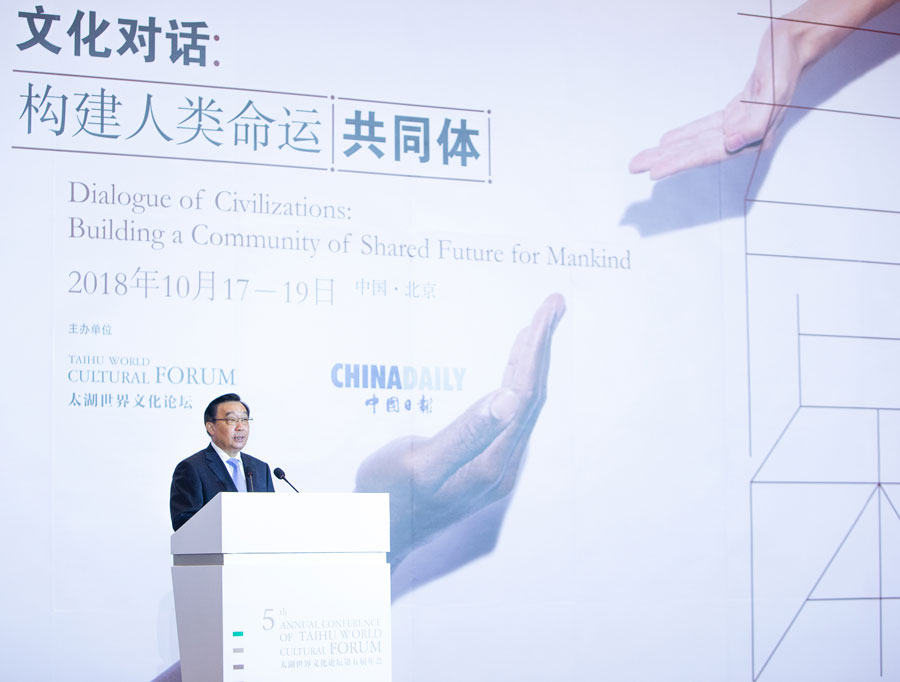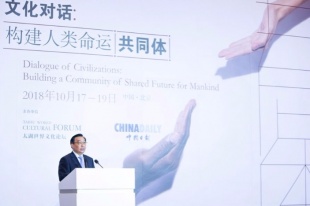Respect for diversity, harmony important for international relations, scholars say


A new international order based on respect for diversity and harmony would make the world a better place, according to officials and scholars at a talk on Thursday in Beijing.
The session, part of the fifth annual conference of the Taihu World Cultural Forum, focused on new international relations in the building of a community of shared future for mankind, inviting politicians and experts to express their thoughts on global governance.
The forum, which promotes Chinese culture and serves as a platform for international nongovernment exchanges, kicked off on Wednesday and will last until Friday.
Miguel Angel Moratinos Cuyaube, Spain's former minister of foreign affairs and cooperation, said harmony is of great importance, and the countries of the world should work together to promote cultural diversity.
He encouraged maintaining cultural diversity and said the China-proposed Belt and Road Initiative is a way to keep different cultures vital.
"Through the initiative, we can promote communication, transportation, logistics and humanity," he said. "This is the future development direction."
Moratinos also called for different peoples to coexist harmoniously as he believes that culture should be part of people's lives and the future development of every country.
Li Xiangyang, director of the National Institute of International Strategy, said the Belt and Road Initiative will help the existing global governance system as its mechanism itself is diverse.
Unlike other regional cooperation systems whose mechanisms are simple, he said the initiative involves multiple components under one framework, and can be paralleled with the existing global governance system as it is also a manifestation of a community of shared future for mankind.
Mohamed Noman Galal, former Egyptian ambassador to China, emphasized the importance of harmony, giving examples of ancient Chinese experience.
Galal said Chinese people accepted the concept of common development and prosperity, devoted themselves to working together to solve problems and complement each other, such as the example of Zheng He in the Ming Dynasty (1368-1644) sailing to other parts of Asia and East Africa to establish friendly relationships.
China's investment announced during the Forum on China-Africa Cooperation last month, he said, is in fact a common development for different civilizations instead of aggression or imposition of China's own values on Africa, as some people argue.





































